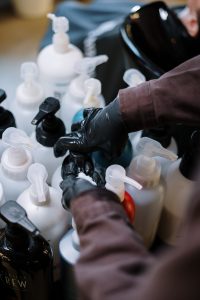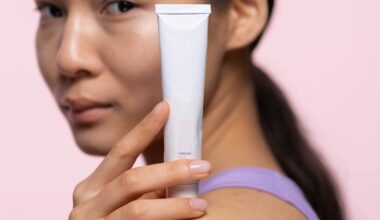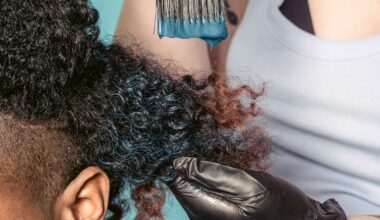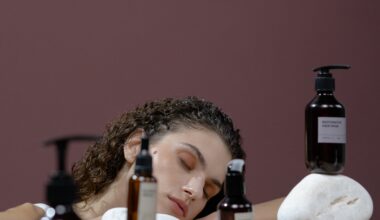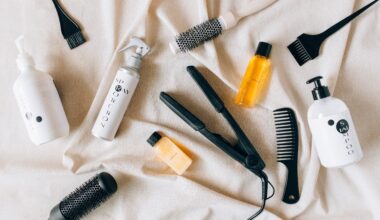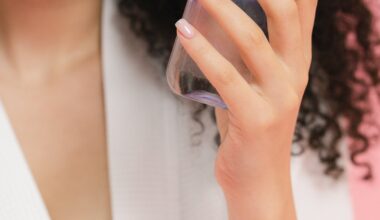
Studies have shown that some chemicals found in the bloodstream end up there through the skin’s absorption of cosmetic products. The scalp is a porous skin organ so you might want to pay more attention to the ingredient list on your shampoo or conditioner.
These ingredients range from mild irritations to life-threatening effects on the body. Some of them cannot be totally avoided as they are what make up our hair products. The FDA mandates that some ingredients be used only in low concentrations that won’t harm consumers. An ingredient can go from normal to harmful when it is used in high concentrations
One way to know if a product can be harmful to you is by checking the amount of chemicals used in the formulation of that product. Some brands disclose this by using percentages. For brands that don’t, check the position of the ingredient in your product. An ingredient showing up in the first 5 list may be an indicator that the product might be harmful to use.
Here are some ingredients you might want to avoid in your hair products:
1. Toluene
Toluene is one ingredient you want to look out for when buying hair products, especially hair dyes with pretty colours. Most brands formulate and derive their artificial colours from a mixture of petrochemicals including toluene.
Repeated exposure to toluene can inflame your scalp and cause lung and throat infections. It can compromise a pregnant woman’s reproductive system and even lead to birth defects. This is why pregnant women are advised to avoid hair dyes.
Plant-based hair dyes like henna are a safer alternative. Always do a patch test before using any hair dye. You can check if your hair dye or shampoo contains toluene by looking out for these labels;
- Benzene
- Toluene
- Tuluol
- Phenylmethane
- Methylbenzene
2. Alcohols
Alcohols are commonly used to aid the absorption of products into your hair. Alcohols aren’t toxic but too much of it in your shampoos can be harsh on a sensitive scalp. It can strip your scalp of its natural oils and cause your hair to break due to dryness.
Fatty alcohols like cetyl alcohol, lauryl alcohol, cetearyl alcohol, and stearyl alcohol are great for locking in moisture without drying out your hair, but watch out for products with a high concentration of;
- Benzyl alcohol
- Isopropyl alcohol
- Methanol alcohol
- Propanol alcohol
- Ethanol alcohol
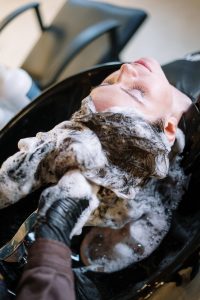
3. Sulfates
Sulfates are a common cleaning agent used to make shampoos lather up foam. They’re the reason why your shampoo foams up really well. While they’re great for cleaning out all the dirt in your hair, too much of it can strip your scalp of its natural oils leaving your scalp prone to dandruff.
Your natural hair is already prone to dryness, so if you’re going to use a shampoo containing sulfate, make sure to use a protein-based moisturizing conditioner with it. This will help regulate the drying effect. Sulfate-free shampoos are a safer option for people with sensitive scalps as they can trigger allergies, inflame the scalp or even lead to hair loss. Common sulfates include;
- Sodium Lauryl Sulfate,
- Sodium Laureth Sulfate,
- Ammonium Lauryl Sulfate
4. Fragrances
Most brands hide the names of toxic chemicals used to formulate their products under fragrance since they’re not mandated to disclose the contents of their fragrance. This is why even after being careful with product selection, you find out that your hair shampoo constantly irritates or inflames your scalp.
Some of the chemicals listed under fragrances may trigger migraines, allergies, asthma attacks, disrupt hormones in women and may even be carcinogenic. The best thing to do is check that fragrance make up a very small percentage of your shampoo or conditioner. Fragrance is usually listed in products as;
- Fragrance
- Parfum
5. Formaldehyde
Due to its preservative qualities, formaldehyde is one of the chemicals used to embalm corpses. It is also used to prevent bacteria from growing in hair products. Formaldehyde in any form has a high absorption rate hence is safe to use only in small quantities.
It can become harmful and even carcinogenic when used in high concentrations in product formulations. So before you add that bottle of shampoo or hair gel to your cart, check the quantity of formaldehyde it has.
Although some brands don’t disclose the quantity of formaldehyde in their product, you can still identify formaldehyde by the following labels;
- Bronopol
- DMDM hydantoin
- Quaternium 15
- 3 dioxane
- Diazolidinyl urea
6. Mineral Oil
Mineral Oil is a by-product of petroleum. Mineral oils are great for giving your hair a shiny, glossy look. They do this by forming a layer of film on your hair strands. Although a popular ingredient in cosmetic products, they are incapable of penetrating the hair or skin. This means that they can only go as far as the surface level. Since they cannot be absorbed into the hair or scalp, they are the main culprit for greasy hair.
Using a shampoo or conditioner formulated with mineral oil might not address your hair concern. Products that contain plant-based oils (like almond oil, avocado oil, and coconut oil) are a better alternative as they will penetrate your scalp and nourish your hair. Look out for the amount of
- Petrolatum
- Petroleum Jelly
- Paraffin Oil and
- Mineral Oil that your conditioner or hair oil contains before adding to cart.
7. Ethanolamine
Ethanolamines like Diethanolamine and Triethanolamine are popular foaming agents in most cosmetic products. When a product is formulated with too much ethanolamine, it may react with other chemicals and become toxic or even carcinogenic. Ethanolamine can be identified in products by these labels;
- Cocamide DEA
- DEA-Cetyl Phosphate
- Linoleamide MEA
- Myristamide DEA
- Oleamide DEA
- Stearamide MEA
- Triethanolamine
8. Silicone
Silicones are popular emollients used to retain moisture and give your hair a shiny coating. Although silicones aren’t toxic, they can weigh your hair down and clog your hair follicles. Products containing a high concentration of silicone are not great for nourishing or hydrating your hair strands. Common silicones in hair products include:
- Dimethicone
- Cyclomethicone
- Phenyl trimethicone
- Cyclopentasiloxane
9. Parabens
Parabens are another type of preservative used to prevent bacteria from growing in cosmetic products. Parabens can easily be absorbed into the skin. Products with high concentrations of parabens have been found to cause allergic reactions, scalp inflammation, disrupt hormone levels and even increase the risk of cancer. Some brands tag their products “paraben-free”, but you can still find paraben in some shampoos with the following labels;
- Ethylparaben
- Propylparaben
- Butylparaben
- Methylparaben
- Isobutylparaben
10. Polyethylene Glycol
Polyethylene glycol is a by-product of petroleum used as a thickening agent in hair products. It is also a common cleaning agent that can be harmful to your scalp and even cause cancer. Common names of polyethylene glycol in hair products include;
- Stearic acid
- Gelatin
- Xanthan gum
- Carnauba wax
